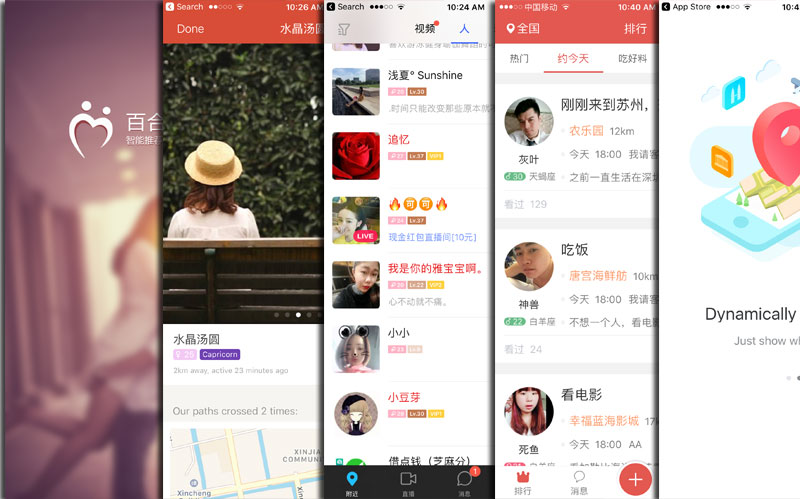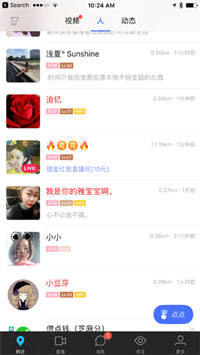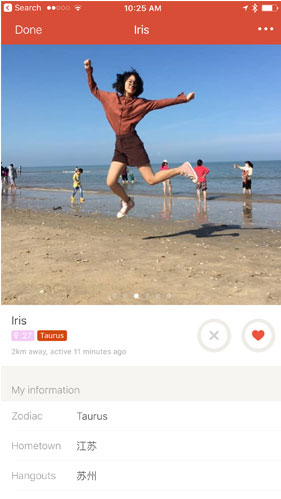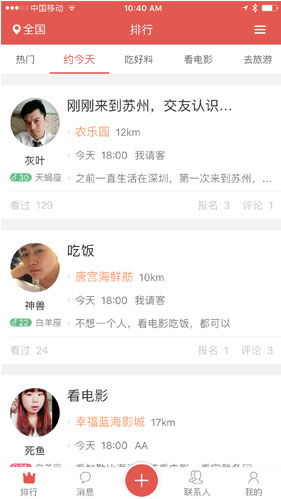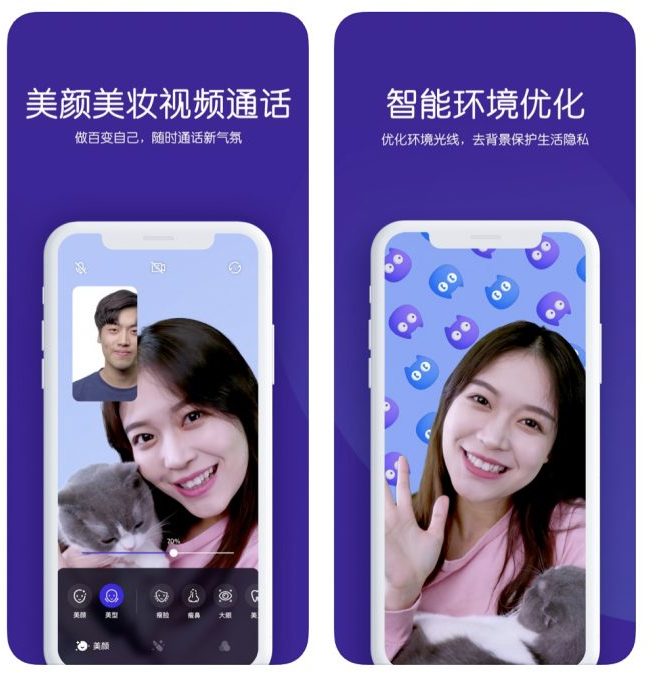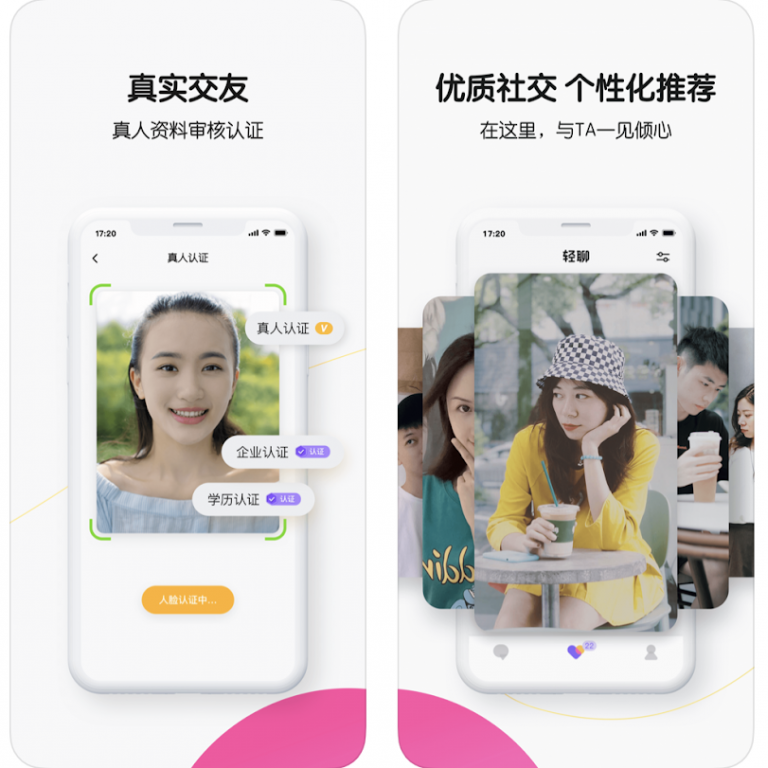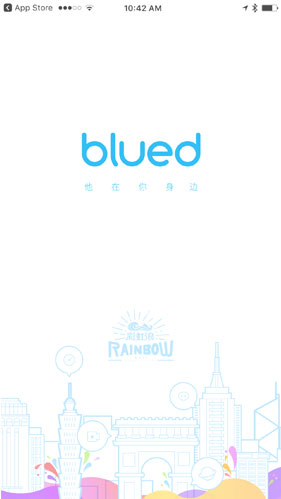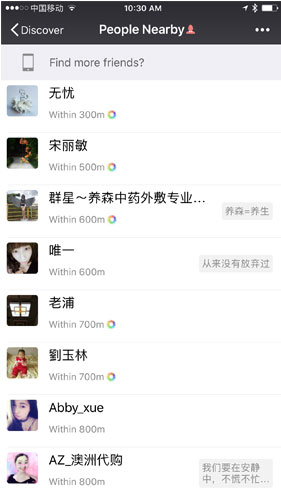Here is our review of the most popular Chinese dating apps:
Momo (陌陌)
Momo is, by far, the most popular Chinese dating app and by the number of users this mobile app is only second to WeChat. In the last couple of years Momo has been trying hard to improve its past seedy reputation re-positioning itself more of an interest based social app rather than purely a hook up service. It has added some shopping elements, games, groups etc. Those changes also made it harder to navigate – it is sort of all over the place nowadays. Nevertheless, when it comes to Chinese dating apps, Momo is the first one that comes to mind of most singles in China. Unfortunately, it is only available in Chinese – the English version was discontinued 3 years ago, although the company promises to launch an international version in the future.Tantan (探探)
After Momo, Tantan is the second most popular Chinese dating app. It doesn’t have a great deal of features focusing on just one mission – being a purely a location based hook up app. In terms of design, Tantan is a shameless Tinder rip-off taking advantage of its famous trademark feature – left or right swipe. Two users that “liked” each other can start a chat and there is a daily limit on how many profiles can be viewed. Similar to Tinder, more features can be unlocked with premium membership which is how the app makes money. Although Tantan is almost exact copy of Tinder (it also can be used in English), the western original has only itself to blame for not making it in China. By linking itself to Facebook as the only way to create an account, it has locked itself out of Chinese market from the start.Baihe (百合)
Baihe takes looking for a date onto a whole new level. It targets people who are serious about finding the right match and are not there just looking for a booty call. In fact, users’ info in Baihe look more like job resumes rather than typical dating profiles. All users must use real names and have to pass verification to ensure there are no fakes. They are also encouraged to list assets like housing and cars with the proof that they really own them. Educational credentials such as diplomas and certificates as well as credit score are also common profile features. Dating is a serious business on Baihe and this attitude is what sets it apart from other Chinese dating apps.QingChiFan (请吃饭)
QingChiFan literally means “invitation to a meal” which is already self-explanatory name for this Chinese dating app. The idea is that getting to know each other over a meal is the most natural form of dating. Typically, guys would be the ones offering dinner invitations and it is up to a girl to accept it. Of course, the opposite is also possible although much less common. User can also choose to extend invitation to a group as well as set the time frame within which the offer is valid: only for today, tomorrow or within a week. The “inviter” can narrow down the criteria for invitees based on age, profession and even zodiac sign. QingChiFan seems to be a great concept with a lot of potential and, for a change, without a direct equivalent in the West as far as we know.Maohu
Most recently, Tencent has launched Maohu, a new video-centered dating app.
Users are matched based on gender (only heterosexual matching is allowed), location, interests and dating preferences. Once matched, users can only communicate via video in 5 minutes “dating sessions” while wearing a “mask”. Mask is removed for male users after 5 minutes while females can wear it indefinetly. Once the mask is removed, the beauty filters are applied automatically.
The app can be considered using a “slow dating” approach – only 3 conversations per day are allowed. “Only video” dating app is a fresh idea in the market but with the popularity of live streaming, it seems to be catching on.
Qingliao
Tencent is determined to establish itself as the top player in mobile dating market with another app called Qingliao that is being marketed as “high quality socializing”.
In essence, this is another Tinder clone – users are matched if they like each other, the only difference is that instead of left or right swipes users tap a “heart” or a “cross”. Tencent puts an emphasis on verifying members which can be done by linking to user’s verified WeChat account or sumitting photo ID.
Qingliao also limits the total number of profiles users can view within 18 hours period: 15 profiles for men and 22 for women. Most likely, paid members will be able to increase that limit but this option was not yet available when we reviewed it.

